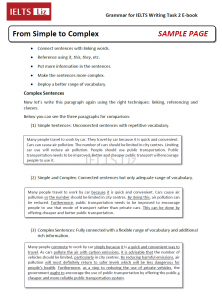This is a reading exercise to practise the TFNG questions that appear in the IELTS test. This exercise is slightly easier than an IELTS reading passage but still useful practice for both academic and GT students. To see IELTS reading tips and a TFNG free video lesson, see this page: IELTSliz Reading Main Page
IELTS TFNG Practice Lesson
Passage: Monarch Butterflies
Only monarchs born in late summer or early fall make the migration, and they make only one round trip. By the time next year’s winter migration begins, several summer generations will have lived and died and it will be last year’s migrators’ great grandchildren that make the trip. Yet somehow these new generations are born to know the way, and follow the same routes their ancestors took—sometimes even returning to the same tree.
In their larval stage monarch caterpillars feed almost exclusively on milkweed and as adults get their nutrients from the nectar of flowers. The monarch will always return to areas rich in milkweed to lay their eggs upon the plant. The milkweed they feed on as a caterpillar is actually a poisonous toxin and is stored in their bodies. This is what makes the monarch butterfly taste so terrible to predators – it is nature’s deterrent. Wherever there is milkweed there will be Monarch butterflies. The monarch is widely distributed across North America, from Central America northwards to southern Canada, and from the Atlantic to the Pacific coasts.
It is predicted that one of the many effects of climate change will be wetter and colder winters. If they are dry, monarchs can survive below freezing temperatures, but if they get wet and the temperature drops they will freeze to death.
Notice: This reading passage is from the website: defenders.org. To see the full article , please visit this page: http://www.defenders.org/monarch-butterfly/basic-facts. Learn about conservation – protect our planet!
Questions
Decide if the following statements are True, False or Not Given according to the information in the passage above.
- About 50% of Monarch butterflies migrate.
- Migration skips only one generation.
- Migration paths are innately known in Monarchs.
- Monarch butterflies feed on milkweed.
- Milkweed dense zones are popular breeding spots.
- Monarch butterflies are toxic to predators.
- The Monarch butterfly is widely distributed in Canada.
- Monarch butterflies are driven to the Pacific coast in order to survive.
- Monarchs are able to survive icy weather under certain conditions.
Answers
Click below to see the answers to this reading lesson:
Click here: Answers to Butterfly Reading Practice
For more reading practice, click here: IELTS Reading Exercises & Tips
Subscribe to get more New Posts by Email












